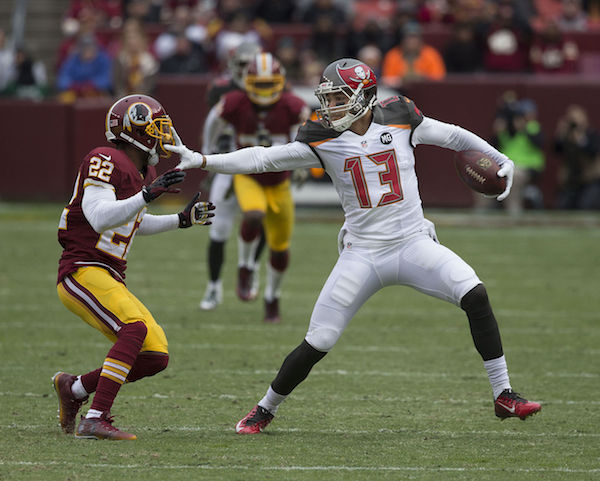Dear Sports Fan,
I keep seeing ads for DraftKings and FanDuel, two daily fantasy sports (DFS) websites. How does DFS or Daily Fantasy Sports football work?
Thanks,
Ted
Dear Ted,
In the football version of daily fantasy sports also known by its abbreviation, DFS, your job is to predict the combination of real world football players who are going to generate the best statistics in the coming week of games.
You are given a set amount of fake money to build your team with. In DraftKings, this is $50,000. In FanDuel, it’s $60,000. (I have half a mind to set up a competitive DFS site called CamelCaps.) The websites set fictional prices for each real-life NFL football player each week depending on how well they think those players are likely to do. A very well-regarded player in what looks like an easy matchup will be on the expensive end of the spectrum. A relatively unknown player or an unexciting player facing a difficult opposition will be on the cheaper side. Your job is to select nine NFL players (really eight players and one team’s defense) whose cumulative salary is less than or equal to the fictional pot of money you begin with.
Then, you sit back and watch the weekend’s NFL games play out. Just like in traditional fantasy football, your success as a fantasy owner corresponds directly to the success of the real players in their real games that you’ve selected to be a part of your imaginary team. At the end of the weekend, the imaginary team that has accumulated the most points from their players’ real-life performances, wins.
How is daily fantasy sports different from traditional fantasy sports?
If you want a primer on how traditional fantasy football works, read our post on the subject.
One key difference between traditional fantasy sports and daily fantasy sports is that in the daily game, your selections have no bearing on anyone else’s. If everyone in the world decided they wanted Eli Manning on their roster one weekend, they could all have him. In traditional fantasy sports, once a player has been selected by an owner, he is unavailable to everyone else. Traditional fantasy sports are a zero sum game. Daily are not.
This non-zero-sum nature enables DFS to involve far more people than a traditional fantasy league. By the time you’ve reached 14 to 16 people in a traditional league, it gets very difficult to find players who generate enough statistics to be worth using on your team. Think you know football pretty well? Talk to some 16 team (or deep) fantasy football owners and see how many of them are conversant with the fourth wide receiver on each of the 32 NFL teams! In DFS, your choice to have Eddie Lacy on your team doesn’t inhibit my choice to put him on my team, so there’s no upper limit to the number of owners who can compete against one another. Indeed, the competitions we hear the most about in television commercials – the ones that “guarantee a prize” of over a million dollars – have tens of thousands of teams competing directly for that prize. Notice the word “team” instead of person. In a traditional fantasy league, those two terms should be synonymous. In DFS, a single person is allowed up to 500 teams or entries in a single contest.
This brings us to the final key difference between traditional and daily fantasy sports – the stakes and the presence of professionals. Traditional fantasy sports are a bad bet for professional gamblers. First of all, they take a long time to pay out. Compared to a bet on a single game, which will pay out within hours of the game ending, tying your capital up in a proposition that will take 16 weeks (for football and longer for other sports) is virtually a non-starter for someone who wants to use their money to make more money. It’s just too slow. Daily fantasy sports speed up the process so that it is more attractive for professional gamblers. Likewise, the amount of money involved is much higher. Many traditional fantasy leagues have each owner risking $100 for the season. That may seem like a lot, and certainly winning $500 to $1,000 if you win a league is no joke, but spread out over the whole season, that’s only $6.25 a week. That’s less than going out to a movie! That’s less than just the popcorn at some movie theaters. Daily fantasy sports, with its multiple entries per contest and many potential contests per week, facilitate much higher stakes.

